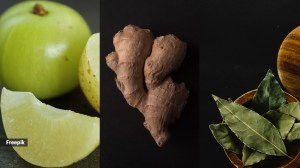Animals are People Too
In an either/or world,its hard being a whimsical vegetarian.
In an either/or world,its hard being a whimsical vegetarian.
I once saw the saddest thing a truck driving ahead of me,with a huge grilled cage,and wan white feathers fluttering on the metal bars.
I felt momentarily awful,but un-implicated the abattoirs and slaughterhouses will grind on regardless of what little I consume. What difference would my conscientious objection make?
Im happy to buy a pleather bag phony leather that looks the same,costs much less,and doesnt involve ripping the skin off an animal. But deciding to be vegetarian (unless its decided for you by family or religion) is so much harder.
Personally,I dont want to make morally superior,abstemious choices,shunning wool and insisting on non-violent silk and hemp. Once you start confronting the ways in which we hurt the natural world,youre slipping down a dangerous slope of compassion. That level of empathy would be wounding and disabling,and make it difficult to function in the real world. The only honest thing to do would be to wander around with muslin over your mouth,like the Jain monks.
Im a flexitarian. That means Im instinctively vegetarian,can eat minutely minced or processed meat,but flinch at bone and gristle. Kebabs are fine,gravied gosht is not (though out of politeness,I can eat that too). Chickens good,shrimp sometimes,pepperoni on pizza. But the general principle is that Id rather not be reminded that Im chewing on flesh,and the marbled pink insides of things revolt me.
But this vague vegetarianism,also called loose adherence to the meat-free diet seems to baffle people. Being mostly vegetarian is like being partly pregnant,they think. In the polarised world of the herbivores and the others (self-righteousness on one side,disdain on the other),we come across as morally wussy.
By now,there are all kinds of ways to wear the vegetarian badge there are lacto-ovo-vegetarians,eggetarians and fishitarians,intense vegans,and the even more intense freegans. But all of them illustrate a principle that there are morally relevant differences between one thing and the other as opposed to those who just dont like the way most meat tastes.
And Im lucky to be living here,where to be vegetarian,you dont have to nibble leafage. Even hardcore vegetarians have choices you could try a Jain pizza,which scrupulously shuns all tamasic ingredients including underground vegetables. Its not a life-denying decision,its about doing marvellous inventive things with vegetables and legumes and grains and nuts and spices. In 17th and 18th century Europe,India was the vegetarian Eden travellers took home fabulous tales of 300-year-old Brahmins who owed everything to their diets,and a human society that lived in perfect peace with the natural world.
But that fascination stems from the fact that the decision to be vegetarian is much more complicated and high-stakes in the west. The philosopher,Peter Singer,rationally convinced many with his 1975 book,Animal Liberation,and sparked real debate about scientific experiments on animals and the cruelty of factory farming.
At a more emotional level,there is a running strand of writers from Plutarch to Jonathan Safran Foer who have tried to persuade us of the merits of ethical vegetarianism.
Percy Bysshe Shelley,who had strenuously worked out a whole bunch of unconventional beliefs,from atheism to wife-swapping,thought it brutalised humans to eat meat. Other Romantic vegetarians compared the redolent exhalations of a herb garden to the grossness of flesh. JM Coetzee has always been intensely preoccupied with the pain of animals,and recently,with his alter ego Elizabeth Costello,that visceral sympathy has spilled over into direct polemic.
Some people think the answer lies in refusing to abstract and disguise what youre doing. Someone I know described a meal in Costa Rica where she and her friends were made to kill the chicken they were to eat later (usually enough to put you off meat forever). For others,it is an unapologetic acknowledgement of our place at the top of the food chain and the right to consume other species,but not wantonly destroy (the way indigenous people might make a ceremony out of the hunting).
For some committed vegetarians,its about evil agribusiness,the antibiotics in animal feed,the appalling methods of waste disposal (wonderfully illustrated in a chilling video clip called The Meatrix freely available online). For others,it is the gut-level refusal to cause pain. Maybe its true that a few generations down,eating animals will seem as repugnant as slavery or apartheid now seems.
For now,theres hope in a petri dish somewhere in the University of Missouri,where theyre working on a protein product with the exact taste and texture of meat. Till then.
(amulya.gopalakrishnan@expressindia.com)
Photos


- 01
- 02
- 03
- 04
- 05




























